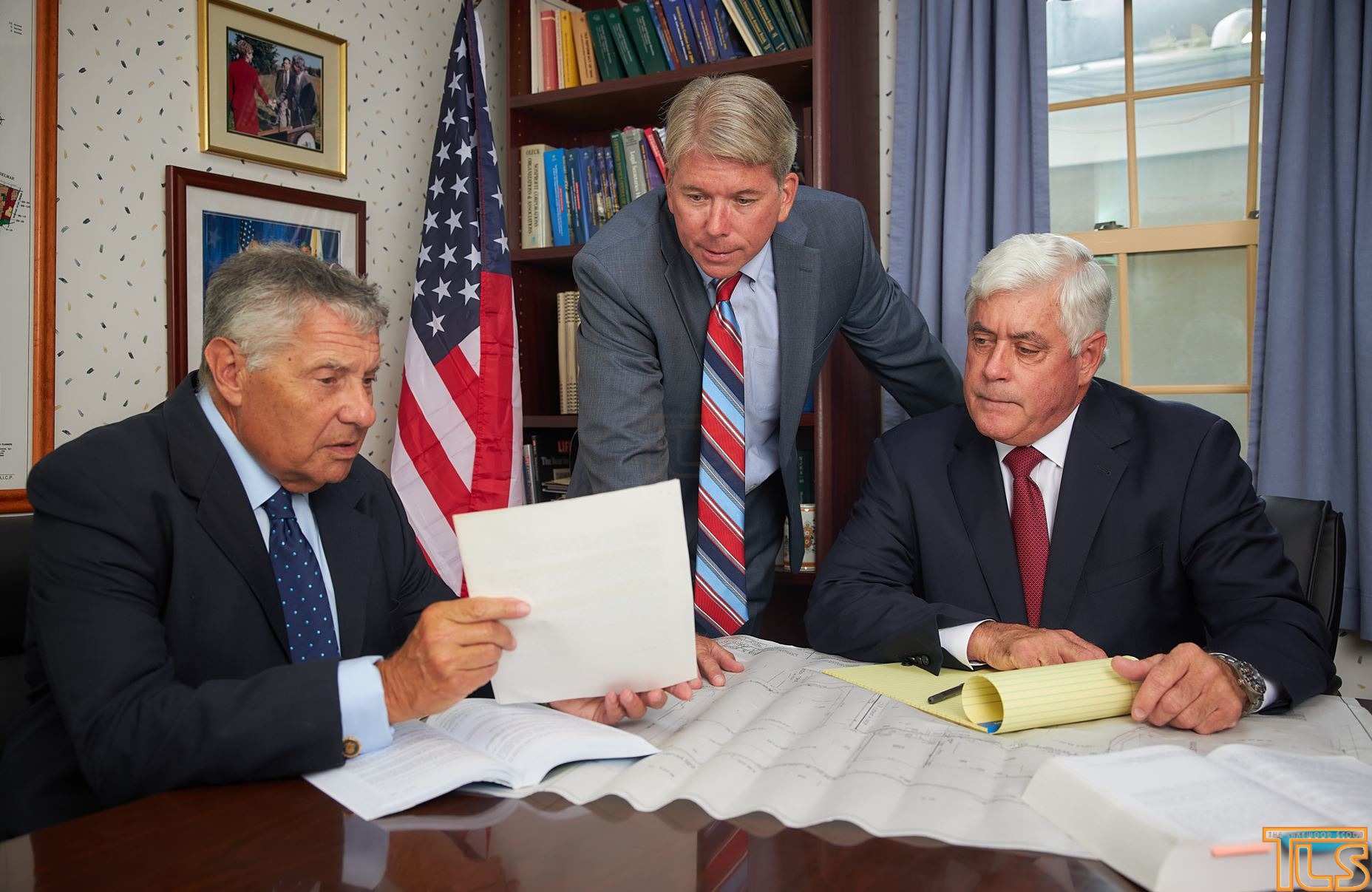 Sen. Robert Singer and Assemblymen Sean Kean and Edward Thomson, lawmakers from Legislative District 30, which includes Howell, say a proposed 319-unit project in the township illustrates the urgent need for affordable housing reform. When the Legislature reconvenes after the November election, they are calling on lawmakers to immediately consider affordable housing policy that includes eliminating mandatory construction, and ensuring housing obligation calculations account for the town’s infrastructure, among other factors.
Sen. Robert Singer and Assemblymen Sean Kean and Edward Thomson, lawmakers from Legislative District 30, which includes Howell, say a proposed 319-unit project in the township illustrates the urgent need for affordable housing reform. When the Legislature reconvenes after the November election, they are calling on lawmakers to immediately consider affordable housing policy that includes eliminating mandatory construction, and ensuring housing obligation calculations account for the town’s infrastructure, among other factors.
“When a judge mandates hundreds of new housing units for a town, they often fail to consider the uniqueness of each community and the impact on the town’s quality of life,” said Singer. “It is time for the Legislature to fulfil its responsibility to enact a sensible affordable housing policy which serves the best interest of the communities we represent.”
Legislation sponsored by the senator and assemblymen, would eliminate arbitrary municipal affordable housing mandates that force towns to allow high-density developments or face costly litigation.
“We have heard from many towns in our district that are struggling to comply with their court-ordered housing mandates and are concerned about how these projects will affect the character of their town,” said Kean. “The loss of open space, increasing property taxes and more traffic congestion are a few of the many issues municipalities are forced to contend with while attempting to meet these burdensome obligations.”
Additional legislation would require the impact on taxes, infrastructure, and schools to be considered when creating affordable housing plans and allow municipalities to challenge their affordable housing numbers.
“Our communities, like Howell, cannot afford to wait any longer for flaws in the affordable housing system to be addressed,” said Thomson. “The Legislature needs to act immediately on this pressing issue to remedy the unreasonable and costly burden these mandates have imposed on our towns.”
The high-density project in Howell comes as part of an ongoing settlement with the Fair Share Housing Center, which sued several New Jersey municipalities in the 2010s for lack of affordable housing. In 2018, a judge determined that Howell must build 895 affordable housing units by 2025.


Excuse me, but don’t the above politicians represent Lakewood too? What about the TREMENDOUS affordable housing shortage that residents in Lakewood are facing?! People are literally busting out of their residences with nowhere to move, while Howell is sitting on thousands of acres of undeveloped land. While I understand that the residents of Howell might want to preserve the rural character of Howell, I do not think that asking Howell to create 319 affordable units is asking too much (especially because it was leaked that the real reason that Howell township opposes the development has to do with “concerns” over the developers ties to some Reform Jewish theological seminary…)
The government has created an artificial crisis in housing prices through zoning, lot size restrictions, rent control, and countless other regulations.
Get the government out of the way!
Not really. There are a few reasons for the rising cost of housing depending on the area. One is that HUD automaitcally increases rent paid by 5% annually, which artificially increases the rent in certain areas.
Another is a consolidation of property ownership. While in the past their used to be a lot of small real estate owners, the market was consolidated by investors purchasing properties at high prices, counting on raising rent via “value add”.
In the old days, value add initially actually involved adding value to the property, offering more amenities, upgrading apartments etc. Now value add just means putting a new coat of paint on an already freshly painted lobby as a pretext to raise rents. .